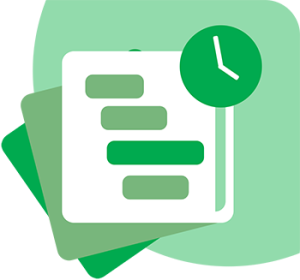Mortgage refinance: when is it smart?

For all homeowners: this is an interesting article if you have a mortgage. You may have heard around you that people are refinancing their mortgages. So they have mortgage A, but are going to switch this to mortgage B. Almost always with the reason of having less fees. But how exactly does this work? If you want to refinance your mortgage, what’s involved and how does it work in practice?
Interest game
Mortgage rates are now historically low (Q3 2021). For many people, the current interest rate is much lower than the one they are paying now. There is just no bank that will let you simply switch from the interest rate you are paying to the current lower rate. Because: the interest you pay for the loan the bank gave you is the bank’s way of making money. So if you pay less interest, they earn less from you. Don’t like them, we all understand.
Fine
For this, banks then charge a fine, the rascals. That penalty is calculated based on the interest rate difference and also how long your old interest rate is fixed. If your old interest rate is still fixed for a long time then the penalty is huge. But even then, sometimes it can be interesting. It often comes down to the fact that that penalty -and the closing costs- can then be borrowed additionally with the new mortgage. The new mortgage will be a lot higher but with much lower interest rates. On balance then, you may still end up paying much less despite the high penalty. Because your new mortgage will be a lot higher, though, it’s important that you stay put for a while. Suppose you move a year after the refinance, you’ll be left with much less excess value simply because your new mortgage is a lot higher than the old one.
Therefore, the less the old interest rate is fixed for a shorter period of time, the smaller the penalty and the quicker it is worth switching. For example, up to max 2 or 3 years.
Note that if your current mortgage is a savings deposit mortgage then it is often less interesting to transfer. While you will pay less interest on the new mortgage, you will also receive much less interest on your savings.
What can you do?
To investigate whether this is of interest to your mortgage, there are a number of aspects to consider. For example:
- what is your current interest rate
- how long is this fixed
- what are your current monthly expenses and what would they be with a new interest rate
- how long do you plan to live in your current home
A simple calculation can help you determine if it is of interest to you. You can make these yourself, or you can ask for no-obligation advice at this party.
What is smart is to calculate the penalty and one-time costs. This is set against the benefit: the lower interest rate and therefore possibly lower monthly costs. Then the payback period is calculated.
To do, or not to do?
So whether or not refinancing your mortgage is interesting for you has everything to do with your personal situation. Be well informed. But it can be hugely interesting to delve into this, because being able to save a few hundred euros a month means being able to invest more, means building up wealth faster and more (or saving faster for that world trip, or that Chanel bag, so many people, so many desires 😉





